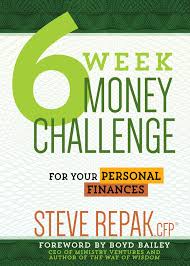In the movie Pirates of the Caribbean: Curse of the Black Pearl, Captain Barbossa refers to the pirates’ code as “more guidelines than actual rules.” Similarly, many people understand what good personal finance rules are, yet they treat budgeting advice, “live within your means,” and investment strategies from experts more like guidelines that can be loosely followed.
4 Simple Ways to Jumpstart Your Finances
The problem with this mentality is that ignoring some personal finance advice can lead to stagnancy: living paycheck-to-paycheck, only meeting minimum payments on debts, and investing the bare minimum amount in retirement accounts.
To avoid falling into this trap, here are a few simple ways to jumpstart your finances:
1. Assess Your Financial Situation
First things first: humans naturally want to avoid feeling stagnant in their lives and the best way to move forward when you’re feeling stuck is by assessing your financial situation. This includes checking your credit report, reviewing the last 2-3 months of transactions on your credit card statements to see what categories you might’ve been overspending on, calculating your net worth (this includes evaluating your current assets and liabilities such as loan debts), and comparing your budget with your actual track recording of spending.
By assessing your current financial situation, you’re setting the foundation for progress and spot areas for improvement that could be holding you back right now. Financial awareness is key to seeing results from your efforts to improve your finances, while others who just sort of “wing it” with their finances might end up frustrated and demotivated by setbacks and failures.
2. Establish a Debt Pay-Off Plan
Are you feeling trapped in financial quicksand because you recently blew your budget and haven’t been able to pay back the debt you incurred? Or are you simply struggling with an ongoing tendency to impulsively spend money on everything from dining out and clothing to new home supplies and toys for the kids or pets? Regardless of the reason why you’re currently scrambling to stay afloat in a pool of debt, you won’t make much progress in improving your finances unless you establish a structured debt repayment plan and stick to it.
To tame your debt once and for all, an effective debt payoff strategy should rely on the “SMART” approach to goal-setting, which requires you to set up goals that are: specific, measurable, attainable, relevant, and time-bound. For instance, you can’t just say your goal is to “pay off debt.” A SMART goal looks more like this: “I will pay off my $8,000 in credit card debt within 12 months by cutting my dining-out expenses in half and adding a side gig (e.g., drive for Lyft) that will add $300 per month to my overall income.” Remember to keep your goals realistic but also strive for more financial efficiency in order to get out of a financial rut.

3. Get a Side Hustle
If you’re currently living paycheck-to-paycheck and this is why you’re struggling to get ahead financially, then you might want to consider side income opportunities such as blogging, web design, programming, selling items online, and anything other activity you’re good at that you could potentially monetize to boost your monthly income.
You can promote your own services or sign up for a gig platform like Fiverr to broadcast your products and services to the world in hopes of attracting some paying customers. Even though you might already have a full-time job consuming most of your time during the weekday, side hustles and passive income streams are useful for anyone who wants to jumpstart their finances with an extra injection of money into their budgets.
4. Make Your Money Work for You
While you’re getting out of a financial rut, one of the best ways to supercharge your progress is by finding ways to make your money work for you with short-term investments. Perhaps you already have an IRA or a 401K in place to fund your retirement someday, but you’d really like to see returns on your investments within a few months or years, not decades.
Short-term investments such as certificates of deposit, peer-to-peer lending, and bonds with maturity dates ranging from a few months to a year or two are ideal because your money will accrue interest in a relatively quick timeframe. This is crucial when you’re trying to jumpstart your finances because it’s an effective way to boost your overall income with minimal effort (the main hurdle is researching the best options for your portfolio).
Jumpstarting Your Finances for Long-Term Success
As you can see, jump starting your finances doesn’t require countless hours of labor or years of waiting to see results. However, you do need a higher level of organization, perseverance, and self-control to achieve your financial goals and get out of the rut you’re stuck in, so be sure to develop specific, attainable strategies and stay on track to avoid tendencies to overspend or push off debt repayments in hopes of obtaining short-term happiness at the expense of your long-term financial well-being.
What about you? Do your personal finances need a jump start? How do you jump start your finances?



Hank, #1 is my favorite. I need to check my credit reports this week.